All Training Courses
-

Radio Network Surveys (On-Demand)
To carry out meaningful radio surveys of GSM, UMTS, LTE and Wi-Fi networks demands a knowledge of how those networks operate and the key radio metrics. These are discussed in detail along with the types of surveys and information they can reveal. The course is focused on the practical issues of performing surveys backed up with demonstrations. The equipment and software used on this course includes the Rohde & Schwarz TSMA radio scanner, ROMES and NESTOR software as well as the QualiPoc, handheld survey tool. Our Radio Network Surveys Training Course is designed to provide participants with the knowledge and practical skills needed to conduct meaningful surveys of GSM, UMTS, LTE, and Wi-Fi networks. This course covers key radio metrics, types of surveys, and the equipment and software used in conducting surveys, including the Rohde & Schwarz TSMA radio scanner, ROMES and NESTOR software, and the QualiPoc handheld survey tool. Whether you are involved in coverage optimization, crime scene investigation, alibi verification, intelligence gathering, or performance analysis, this course will help you create a comprehensive picture of the cellular radio network environment. Participants will learn about cellular radio principles, spectrum and identities, radio measurements and metrics, cell selection and reselections for GSM, UMTS, and LTE, location reporting in idle mode, mobility in Wi-Fi, connected mode activity for mobile devices, tools for radio surveys, spectrum occupancy, coverage surveys, base station position estimation, and practical guidance for surveying. While previous attendance on GSM, UMTS, LTE, and Wi-Fi courses may be advantageous, it is not essential to benefit from this training. Who would benefit Those that need to create a ‘picture’ of the cellular radio network environment to aid coverage optimization, crime scene investigation, alibi verification, intelligence gathering and performance analysis. This course features the Rohde & Schwarz TSMA radio scanner in conjunction with the ROMES and NESTOR software as well as a drive test tool. Prerequisites Previous attendance on GSM, UMTS, LTE and Wi-Fi courses would be advantageous but not essential. Topic Areas Include: Cellular radio principles Cellular radio spectrum and identities Wi-Fi radio spectrum and identities Radio measurements and metrics Cell selection and reselections for GSM, UMTS and LTE Location reporting in idle mode Mobility in Wi-Fi Connected mode activity for mobile devices Tools for radio surveys Spectrum occupancy Coverage surveys Base station position estimation Practical guidance for surveying
£1,815.00
-
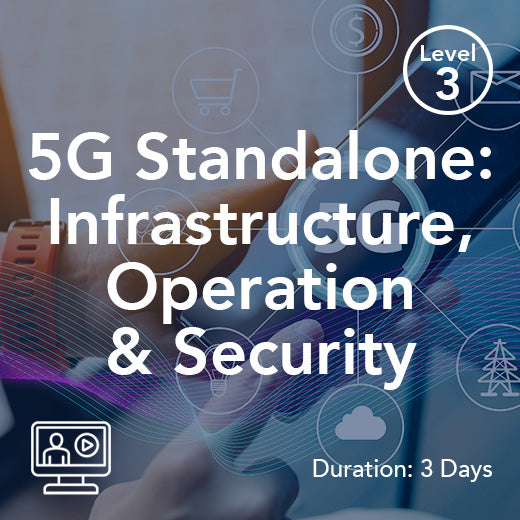
5G Standalone: Infrastructure, Operation & Security
Course Code: FG2301 One of the key requirements of 5G is its flexibility. Spectrum, Radio Interface configurations, RAN (Radio Access Network) deployment, Core Networks, and the mix of 4G and 5G used within the network are highly flexible – with much more flexible resource allocation compared to previous generations.Non-standalone (NSA) 5G made use of this flexibility by enabling 5G to effectively be an add-on to the public 4G LTE network; providing much-needed added capacity in specific locations (many of which were reaching maximum capacity), but continuing to make extensive use of existing 4G infrastructure and operations.As an Industry, we are now looking at full Standalone (SA) 5G – allowing us to gain the full benefits of 5G (in terms of better efficiency, latency, energy use, reliability etc). This means that we will need to transition to specific configurations and deployment options in order to allow full 5G operation. As an example, one of the conditions for SA 5G is that we use the new Service Based Architecture for the 5GC(5G Core).This programme focuses on the 5G system in the form of Standalone 5G (SA 5G), including the various configurations, procedures, and deployment options. Topic Areas Include: Introduction to 5G Principles of the 5G New Radio 5G Air Interface Radio Access Network Architecture Core Network Architecture Data Transport 5G Procedures 5G Security Architecture; and Authentication and Key Agreement Security and the Service Based Interface (including SEPP*) Releases 16 and 17 5G Protocols
£2,660.00
-
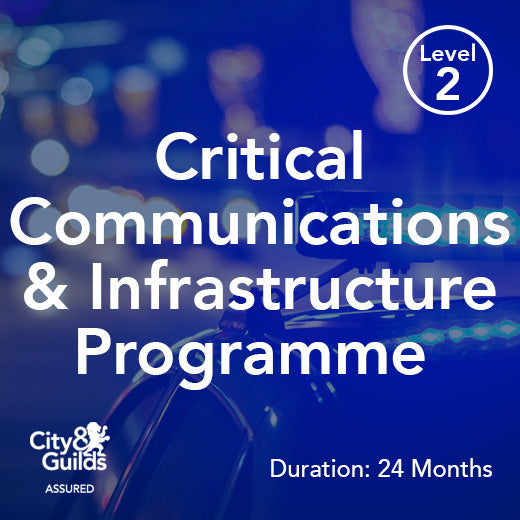
Critical Communications & Infrastructure Programme (Police Track)
Next Cohort: 27th March 2026 Build essential telecoms knowledge and skills to aid forensic investigations and provide expert witness testimony. The widespread use of mobile telephones has proven to be a useful source of information for law enforcement agencies. The ability to prove or disprove that a mobile device was used in the area of, or location of, a point of interest is invaluable. But to safely prove the case requires an understanding of cellular mobile technologies. The Critical Communications & Infrastructure Programme (Police Track) provides those working in Law Enforcement with a detailed understanding of the mobile network technologies of today and tomorrow, allowing them to conduct efficient investigations and provide compelling expert witness evidence in court. We have combined some of our most popular training courses to build a guided learning pathway that enables you to demonstrate your expertise and competence in modern telecom technologies. Who would benefit? Our Critical Communications & Infrastructure Programme (Police Track) has been designed for anyone working Law Enforcement from new starters looking to build their technical knowledge from the ground up to more experienced engineers looking to formalise and expand their knowledge base. Rigorous testing, regular digital badging and certification ensures that successful students are able to demonstrate the breadth and depth of their knowledge. This programme has been assured by City & Guilds. Assured status provides validation and recognition for the learner. It is a symbol of learning excellence and quality and is a reassurance that the training undertaken meets best practice standards. Critical Communications & Infrastructure Programme (Police Track) Syllabus Foundation Courses Technology Fundamentals Course Modules: Defining Telecoms Background to the Telecom Network Digital Fixed Telecom Networks Data Networks Mobile Networks and Wi-Fi Broadband and Emerging Networks 2G to 5G Mobile Technologies Course Modules: Principles of Mobile Cellular Networks 2nd Generation Mobile Networks 3rd Generation Mobile Networks 4th Generation Mobile Networks 5th Generation Mobile Networks Radio Principles Course Modules: A Need for Radio Frequency and Bandwidth Modulation Radio Spectrum Antennas and Transmission Lines Propagation Radio Coverage Radio Interference Analogue and Digital Systems Specialist Courses The TETRA System - An Overview Course Modules: Introduction to TETRA TETRA Services TETRA Network Components TETRA Network Architecture Air Interface Radio Procedures TETRA System Capacity Direct Mode Operation (DMO) Security Aspects of TETRA Radio Network Surveys Course Modules: Cellular Radio Principles GSM/UMTS/LTE/5G Networks Wi-Fi Radio Networks Radio Measurements Idle Mode Activity for Mobile Devices Connected Mode Activities for Mobile Devices Tools for Radio Surveys Guidance for Radio Network Surveys WiFi Engineering Overview Course Modules: Wireless LAN Technologies and Standards 802.11 PHY MAC Frame Structures MAC Procedures Security Wi-Fi Troubleshooting About City & Guilds Assured City & Guilds is a household brand and a global leader in skills development. Over one million people earn a City & Guilds qualification every year, providing them with the skills they need to thrive in the workplace.In the global economy, the ability to compete depends on building a skilled, competent and confident workforce. City & Guilds understands the value of portable skills and globally recognised standards that enable people and organisations to succeed. It partners with Governments, employers and educators in over 50 countries, across five continents, to advise them on developing high-quality skills training that meets the needs of the global workforce, without compromising on local demands. Enrolment Fees: £2,995 (+VAT) Programme Duration: 24 months (Programme is On-Demand, learners can start at any time) Bespoke In-Company Schemes The Critical Communications and Infrastructure Programme provide the ideal structure for formalising training programmes for teams across your business. Contact us on info@wraycastle.com for more information.
£2,995.00
-
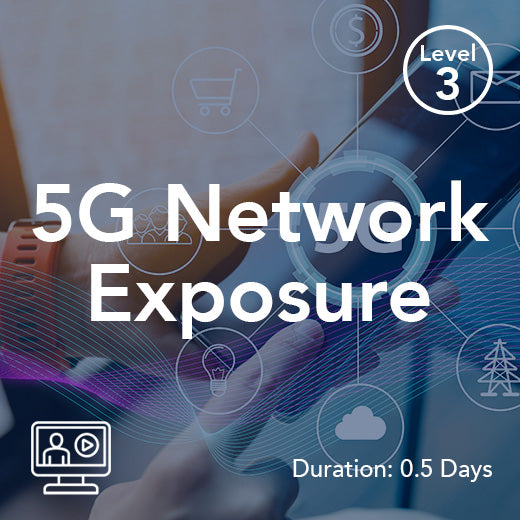
5G Network Exposure
This course is intended for engineers working on the 5G core network, who wish to learn about the exposure of core network capabilities to a third-party application server by way of the NEF. The course introduces the functionality of the NEF up to 3GPP Release 17, and provides an in-depth description of some of its more commonly used services. In the ever-evolving world of telecommunications, engineers working on the 5G core network must stay up-to-date with the latest advancements. Our 5G Network Exposure coursesis designed for engineers who want to understand how core network capabilities are exposed to third-party application servers through the Network Exposure Function (NEF). This course covers the functionality of the NEF up to 3GPP Release 17 and provides a detailed explanation of its commonly used services. To get the most out of this course, participants should have a basic understanding of the architecture and signalling protocols in the 5G core network. The session will delve into topics such as Network Exposure in 5G and Network Exposure Function Services, giving attendees a comprehensive overview of how these elements work together in the 5G ecosystem. For those looking to further enhance their learning experience, an optional 5G Virtual Lab Module is available for exploring, testing, optimizing, and troubleshooting the 5G system in a simulated environment. Stay ahead of the curve and deepen your knowledge of 5G network exposure with our interactive and informative online session. Join us to gain valuable insights and practical skills that will help you excel in your role as a 5G core network engineer. Prerequisites The course assumes a basic understanding of the architecture and signalling protocols in the 5G core network. Course Contents Network Exposure in 5G Network Exposure Function Services Optional 5G Virtual Lab Module Explore, Test, Optimise, and Troubleshoot the 5G System Deep dive into the key signalling scenarios in the 5G system and analyse the output to build a deeper understanding that goes beyond the theoretical. The lab is a fully emulated 5G System environment that enables you to experiment with the configurations for Network Functions and build customized settings for signalling scenarios that helps you to develop greater insight into the operation of the 5G System. Lab modules can be added to any relevant 5G course. Learn more and arrange a demo.
POA: Private Course
-
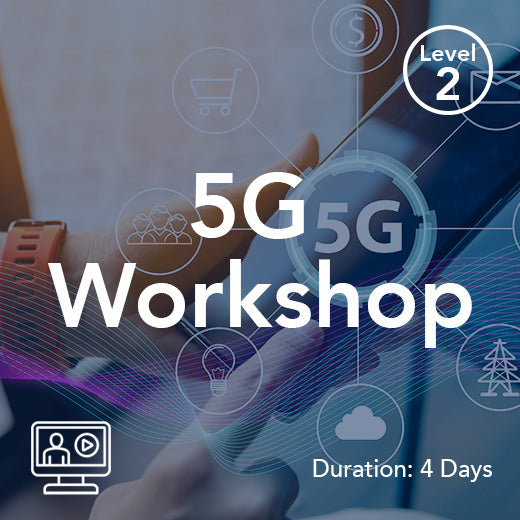
5G Workshop
This intensive 4-day 5G workshop delves into the commercial aspects of 5G and the transformative capabilities it brings to telecommunications companies, emerging players in the communications industry, and other related sectors. Participants will gain a comprehensive understanding of how 5G technologies such as New Radio, NG-RAN, and SBA (Service Based Architecture) facilitate flexibility, cost efficiency, diverse deployment scenarios, and new use cases to support existing and emerging business models. The workshop also explores the pivotal role of 5G in enabling a new phase of connectivity and innovation, paving the way for a wide array of business opportunities and models. In addition to the commercial aspects, this workshop provides a technical introduction to 5G, covering the principles, design, and implementation of the 5G air interface, radio access network, and core network, as well as the operational aspects of the 5G system. Participants will gain insights into the technical intricacies of 5G technology and how it underpins the next generation of connectivity and business innovation. By the end of the workshop, attendees will be equipped with the knowledge and tools to capitalize on the opportunities presented by 5G within their organizations and beyond. Prerequisites To gain maximum benefit, participants should have a relatively rounded background in telecommunications or adjacent industries (whether technical, commercial, or both). Course Timetable Day 1 Day 2 Day 3 Day 4 AM The Telecoms Environment 5G as a Key Business Enabler for Ongoing Connectivity Connected Innovation – A New Universe for Connectivity Supporting New Use Cases Principles of the 5G New Radio 5G Network Architecture PM 5G – A Framework for Cost Control 5G Strategy 5G Air Interface 5G Procedures Releases 16 and 17 Optional 5G Virtual Lab Module Explore, Test, Optimise, and Troubleshoot the 5G System Deep dive into the key signalling scenarios in the 5G system and analyse the output to build a deeper understanding that goes beyond the theoretical. The lab is a fully emulated 5G System environment that enables you to experiment with the configurations for Network Functions and build customized settings for signalling scenarios that helps you to develop greater insight into the operation of the 5G System. Lab modules can be added to any relevant 5G course. Learn more and arrange a demo.
POA: Private Course
-

The Critical Communications & Infrastructure Programme (Railway Sector)
Duration: 24 Months Modern Rail networks rely on efficient and resilient communications networks, without which rail networks cannot operate safely. The demand for up-to-date technical skills for those involved in maintaining and developing transport communications systems continues to grow. The Critical Communications and Infrastructure Programme (Railway Sector) is a comprehensive programme designed to equip professionals in the rail industry with the essential knowledge and skills to excel in their roles. The programme aims to provide participants with a holistic understanding of rail radio communication technologies, strategic insights, and practical skills to navigate the complexities of the ecosystem. This programme has been assured by City & Guilds. Assured status provides validation and recognition for the learner. It is a symbol of learning excellence and quality and is a reassurance that the training undertaken meets best practice standards. Each complete self-paced on-demand distance learning course includes an extensive blend of core reading materials, video resources, quizzes and a dedicated Instructor. All in a modern, intuitive and secure cross-device Virtual Learning Environment. Programme Format Foundation Courses Introduction to Telecoms 2G to 5G Mobile Technologies Radio Principles Specialist Courses: GSM-R Engineering Overview ERTMS/ETCS for Radio Engineers FRMCS Engineering Who would benefit? The Critical Communications and Infrastructure Programme (Railway Sector) would benefit those working in the rail industry with a responsibility for planning, building, maintaining and optimising the rail communications networks of today and tomorrow. Rigorous testing, regular digital badging and certification ensures that successful students are able to demonstrate the breadth and depth of their knowledge. What sets the programmes apart? Focused Learning Pathways – guide you through the material and enable you to become an expert in your chosen field. Flexible Learning – study at a time, location and pace of your choice, allowing you to fit your study into your schedule. Full Tutor Support – from industry experts with decades of experience throughout your studies. 24 months access –access to the all the training materials for 2 years, allowing you to refer back to the material after your studies. Regular Testing and Digital Badges – allow you to demonstrate the depth of your knowledge End of Programme Certificate – students successfully completing the programme are issued with a certificate complete with a grade transcript. Developed and Certified by Wray Castle – the leading supplier of training the global telecoms industry. For purchase of multiple seats, please contact us at uicacaedmy@wraycastle.com
£4,085.00
-
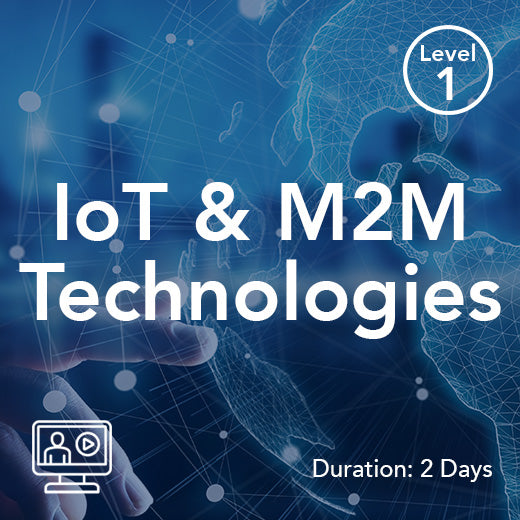
IoT and M2M Technologies
Our IoT and M2M Technologies course is designed to provide a comprehensive overview of both existing and emerging technologies in the field. Ideal for those involved in IoT and M2M projects or looking to explore related opportunities, this course covers the scope, potential applications, use cases, and deployment options available. Participants will gain insight into the technologies and techniques necessary to efficiently deploy and operate supporting infrastructure such as devices, SIM cards, networks, platforms, and the wider ecosystem. This course delves into industry and global models, identifying the major requirements of modern M2M systems and exploring how these requirements can be met using existing and emerging technologies. Participants will gain a thorough understanding of Cellular M2M, including the latest 5G techniques like NB-IoT and CIoT, MTC for LTE, and legacy GPRS deployments. Additionally, the course covers M2M eSIM remote profile provisioning, a crucial aspect of managing device connectivity in IoT and M2M applications. Ideal for industry professionals seeking to upskill in IoT technologies or those focusing on specific aspects of IoT and M2M solutions, this course provides a solid foundation for assessing, driving, or developing IoT opportunities within their organizations. Join us for 2 days and 4 live online sessions with our experienced trainer, Tony Wakefield, to gain valuable insights into the world of IoT and M2M technologies. Who would benefit The course is an ideal foundation for … those working in the industry who need to rapidly upskill to help assess, driveor develop IoT opportunities within their own organisation further study for those focusing on particular IoT / M2M technologies, or specific aspects of IoT / M2M solutions Topic Areas Include Introduction to IoT/M2M Principles of Mobile Cellular Networks Cellular M2M Systems eSIM for M2M MTC – including LTE-M, NB-IoT and CIoT 5G - Enabling IoT and M2M M2M Security Trainer: Tony Wakefield Tony is an experienced technical trainer and competency development specialist having worked with a diverse and extensive base of companies. He has spoken at global conferences and has extensive experience in facilitating programmes, specialising in 5G and the wider aspects of telecoms and connected innovation.
POA: Private Course
-

Software Defined Networking (SDN) (On-Demand)
Our Software Defined Networking (SDN) training course is designed to provide a comprehensive understanding of SDN, including its drivers, architecture, deployment considerations, and case studies. The course covers a range of topics, including SDN drivers for change, evolution and virtualization, SDN goals, SDN architecture, OpenFlow, Netconf and YANG, and more. Participants will gain insights into SDN deployment, network function virtualization (NFV), and SDN in transport networks. A key case study on Google’s G Scale Network will also be explored to provide real-world examples of SDN implementation. Ideal for network, software, and IT engineers, as well as managers and consultants, this course requires delegates to have a basic understanding of IP networking and routing principles. By the end of the training, participants will have a solid foundation in SDN and be equipped to apply their knowledge in practical settings. Who would benefit This course is suitable for those who need a solid base understand of SDN, network virtualisation and the deployment considerations associated with SDN, including network, software and IT engineers, as well as managers and consultants. Prerequisites Delegates should have experience or an understanding of the principles or IP networking and routing. Topic Areas Include SDN Drivers for Change Evolution and Virtualization X as a Service in Layers SDN Goals Introducing SDN Architecture SDN Split Architecture SDN Traffic Engineering Network Functions Virtualization (NFV) and SDN SDN Deployment SDN Architecture SDN Summary SDN Vision Case Study – Google OpenFlow OpenFlow Examples Netconf and YANG SDN to Control Transport Networks Case Study – Mininet
£500.00
-

Cloud Computing (On-Demand)
Our Cloud Computing Training Course provides a technical introduction to the fundamental techniques and protocols that support cloud computing services. Participants will gain insight into the various types of clouds that can be created and the wide range of 'X as a service' offerings available through cloud platforms. This course is ideal for engineering professionals, technical managers, and sales/marketing staff seeking a comprehensive technical overview of Cloud Computing. Participants should have a basic understanding of internet architecture and technologies to fully benefit from this course. Our expert instructors will cover essential topics such as 'What is ‘The Cloud’?', Cloud Architecture and Technologies, Advanced Cloud Architecture Technologies, Types of Cloud Service, Pros and Cons of Cloud Computing, and Telecoms Services and the Cloud. By the end of the course, participants will have a solid understanding of cloud computing principles and how they can be applied in a variety of industries. Who would benefit This course is suitable for engineering, technical management and sales/marketing staff who require a technical overview of Cloud Computing. Prerequisites A basic understanding of the architecture and technologies that support the internet would be beneficial. Topic Areas Include What is ‘The Cloud’? Traditional Models vs Cloud Computing Cloud characteristics Cloud deployments models – private, community, public, hybrid Enabling technologies Traditional data centres Virtualization and multi-tenanting SOA and web services Service grids and autonomic computing Types of Cloud services SaaS, PaaS and IaaS XaaS payment models Pros and Cons of Cloud Computing Pros: cost, scalability, resilience, collaboration Cons: security, availability, trust, de-skilling The future of Cloud Computing On-Demand Online Training Accessible on any device on-demand online training allows you to study at a time and location convenient to you. Each course includes: Illustrated Course Books - featuring leading-edge knowledge from subject matter experts. Videos - Detailed videos expand the points covered in the course books. Tutor Support – Connect with leading experts, ask questions to deepen your understanding. Formative Assessment - Modules include regular quizzes to support learning. Certification – Complete the end-of-module tests to earn Digital Badges to demonstrate the depth of your knowledge of the topic. Included in Wray Castle Hub This course is also available as part of the Wray Castle Hub. An annual subscription delivers unlimited access to this course and over 500 hours of learning material consisting of 30+ Courses, 190+ Learning Modules, and 1,000+ Videos. Annual Subscription: £1400 (Most cost-effective option) Subscribe to Wray Castle Hub here
£500.00
-
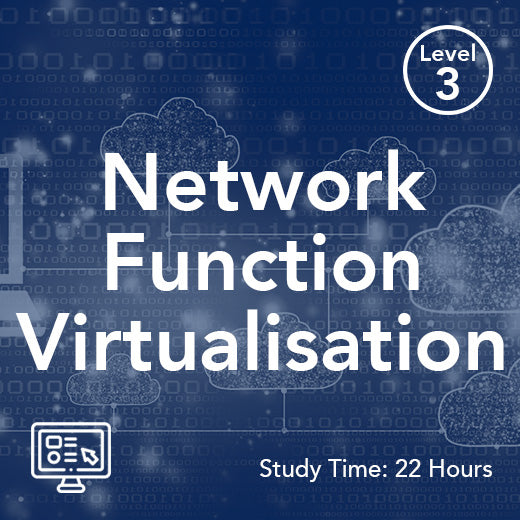
Network Functions Virtualisation (NFV) (On-Demand)
This course is for network engineers who require a practical understanding of Network Functions Virtualisation (NFV). The course reviews the current NFV situation, introduces the leading bodies defining the standards and discusses the likely fields of application by examining use cases and existing Proof of Concepts (POCs). It discusses NFV from ETSI’s perspective, particularly in light of mobile operators’ intent to virtualise their IMS networks, as well as looking at how NFV relates to other techniques such as Cloud Computing and Software Defined Networking (SDN). Network Functions Virtualisation (NFV) is a crucial technology for network engineers looking to stay ahead in the rapidly evolving telecommunications industry. Our 2-day NFV Engineering Training Course is designed to provide a practical understanding of NFV, covering everything from the current NFV landscape to the standards set by leading bodies. Through a series of live online sessions, participants will explore real-world use cases, Proof of Concepts (POCs), and the relationship between NFV, Cloud Computing, and Software Defined Networking (SDN). This course is ideal for network, software, and IT engineers, as well as managers and consultants who need to grasp the deployment considerations associated with NFV. Participants should have a basic understanding of IP networking and routing, with some familiarity with modern telecommunications networks. Topics covered include NFV Functional Architecture, NFV Infrastructure (NFVI), NFV Management and Orchestration (MANO), SDN and NFV integration, and ETSI Proof of Concept Projects. Don't miss this opportunity to enhance your skills and stay competitive in the dynamic world of NFV engineering. Who would benefit This course is suitable for those who need an understanding of NFV and the deployment considerations associated with NFV; including network, software and IT engineers, as well as managers and consultants. Prerequisites Delegates should have experience or an understanding of the principles or IP networking and routing and preferably some understanding of modern telecommunication’s networks. Topic Areas Include Drivers for Change NFV Functional Architecture NFV Infrastructure (NFVI) NFV Management and Orchestration (MANO) Software Defined Networks (SDN) and NFV NFV ETSI Proof of Concept Project
£950.00
-

UIC Rail Academy: Telecoms Collection
The comprehensive UIC Rail Academy: Telecoms Collections includes a wide range of training programmes covering the technologies key to the future of rail communications systems. Our proven platform combined with our Gold Standard training material covering the major rail communications systems (incl. GSM-R, ERTMS/ETCS and FRMCS) and underlying telecoms technologies effectively enables knowledge transfer and upskills staff across an organisation. The Telecoms Collection helps address the skills gap and delivers effective integrated training programmes that truly engage employees in their development, whether it’s new starters, identified talent, or experienced engineers. What’s included? Enrol in the UIC Rail Academy: Telecoms Collection and you'll have access to the following learning resources. The Critical Communications & Infrastructure Programme (Railway Sector) Extended Telecoms Learning Instructor-Led Live Online Training Foundation Courses Telecoms Foundation 2G to 5G Mobile Communications Radio Principles Rail Radio Communications GSM-R Engineering Overview ERTMS / ETCS for Radio Engineering FRMCS Engineering Courses 2G to 5G Mobile Technologies 5G Engineering Overview GSM Air Interface Introduction to Radio Microwave Link Planning IP Engineering Courses FRMCS Overview FRMCS Engineering 5G Radio Planning for Railways Delivery Method: On-Demand Online Delivery Method: On-Demand Online Delivery Method: Live Online (Contact us for the training schedule) Licensing Options The UIC Rail Academy: Telecoms Collection is available from single user licences to enterprise-wide licenses making it a cost effected way to upskill your organisation. Users Single Team (2-4) Enterprise (5+) Price/User €5,950 £4,695 POA For more information email uicacademy@wraycastle.com
£5,090.00
-
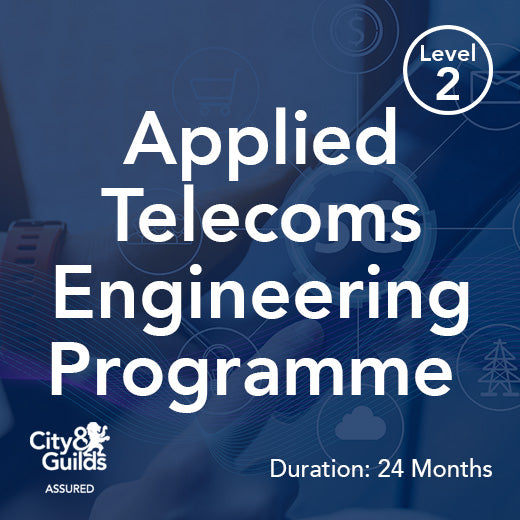
Applied Telecoms Engineering Programme (LTE Engineer Track)
The Applied Telecoms Engineering Programme (LTE Engineer Track) distance learning programmes provides learners with a certified qualification that demonstrates their knowledge of the technologies underpinning the telecoms industry with a focus on LTE core and radio network engineering. This programme has been assured by City & Guilds. Assured status provides validation and recognition for the learner. It is a symbol of learning excellence and quality and is a reassurance that the training undertaken meets best practice standards. Applied Telecoms Engineering Programme (LTE Engineer Track) Syllabus Foundation Courses Technology Fundamentals Course Modules: Defining Telecoms Background to the Telecom Network Digital Fixed Telecom Networks Data Networks Mobile Networks and Wi-Fi Broadband and Emerging Networks 2G to 5G Mobile Technologies Course Modules: Principles of Mobile Cellular Networks 2nd Generation Mobile Networks 3rd Generation Mobile Networks 4th Generation Mobile Networks 5th Generation Mobile Networks Telecoms – as an Industry and Business Course Modules: Telecoms Industry & Business Dynamics The Technology Explained & Evaluated Telecoms Industry & Market Update Specialist Courses LTE Evolved Packet Core Course Modules: LTE Overview Evolved Packet Core Data Transport in the EPC Major Protocols EPC Operation Release 9 and Beyond LTE Air Interface Course Modules: LTE Overview OFDM Principles Physical Layer Structure Layer 2 Protocols Radio Resource Control LTE-Advanced Lower Layer Procedures What you will learn: At the end of the programme successful students will be able to: Develop a fundamental understanding of the technologies underpinning modern telecoms networks, the industry structure and its key stakeholders . Describe the Evolved Packet Core for LTE systems, architecture, interfaces, service provision concepts, application of IP technologies and the overall protocol architectures. Gain a detailed understanding of the air interface for LTE radio access (incl. OFDMA principles, channel structures, connectivity and mobility management and radio link control functions.) Expand their learning further by studying two elective modules to qualify for the Diploma in Telecoms. What sets the programme apart? Focused Learning Pathways – guide you through the material and enable you to become an expert in your chosen field. Flexible Learning – study at a time, location and pace of your choice. Full Tutor support – from industry experts with decades of experience throughout your studies. Extended Learning – Diploma students have the opportunity to study 3 additional courses. 24 months access – allowing you to refer back to the material after your studies. Digital Badges and Course Certificate – demonstrate the depth of your knowledge. About City & Guilds City & Guilds is a household brand and a global leader in skills development. Over one million people earn a City & Guilds qualification every year, providing them with the skills they need to thrive in the workplace.In the global economy, the ability to compete depends on building a skilled, competent and confident workforce. City & Guilds understands the value of portable skills and globally recognised standards that enable people and organisations to succeed. It partners with Governments, employers and educators in over 50 countries, across five continents, to advise them on developing high-quality skills training that meets the needs of the global workforce, without compromising on local demands. Enrolment Fees: £2,995 (+VAT) Programme Duration: 24 months (Programme is On-Demand, learners can start at any time) Bespoke In-Company Schemes The Applied Telecoms Engineering Programme provide the ideal structure for formalising training programmes for teams across your business. Contact us on info@wraycastle.com for more information.
£2,995.00
-

Telecoms Fundamentals (On-Demand)
This course has been designed for those who do not have a technical background and are new to the telecommunications industry or those who are currently working in the sector. The historical background to telecommunications is described and the technologies, abbreviations and techniques that are employed are explained. During the course, emphasis is placed on learning by group work, discussion and exercises that enhance the understanding of networks and their operation. Use of laptops, tablets and smartphones with Internet access are employed to explore emerging technologies in various areas. Videos and images of equipment and networks are used to explore the many applications of telecommunication in the modern world. Topic Areas Include Defining Telecoms and the Nature of Information A Historical Background to the Telecom Network Digital Fixed Telecom Networks Data Networks Mobile Networks and Wi-Fi Broadband and Emerging Network
£950.00
-

NFV Overview
This course on Network Functions Virtualisation (NFV) is designed for network engineers and managers looking to gain an overview of this technology. The course covers the current state of NFV, the leading bodies defining the standards, and the drivers behind the technology, as well as its relationship to Cloud Computing. Participants will also learn about the high-level architecture of NFV and its applicability to real network solutions, particularly in the context of mobile operators' efforts to virtualise their networks. Those who would benefit from this course include network, software, and IT engineers, as well as managers and consultants seeking a high-level understanding of NFV. Delegates should have some experience or understanding of IP networking and routing principles, and preferably some knowledge of modern telecommunications networks. The course content includes discussions on the drivers for change in the industry, the NFV functional architecture, NFV Infrastructure (NFVI), and NFV Management and Orchestration (MANO). By the end of this 1-day course participants will have a solid understanding of NFV and its implications for network solutions. Who Would Benefit This course is suitable for those who need an high-level understanding of NFV; including network, software and IT engineers, as well as managers and consultants. Prerequisites Delegates should have experience or an understanding of the principles or IP networking and routing and preferably some understanding of modern telecommunications networks. Course Contents Drivers for Change NFV Functional Architecture NFV Infrastructure (NFVI) NFV Management and Orchestration (MANO)
POA: Private Course
-

Machine Type Communications for LTE (On-Demand)
Mobile communication systems were originally designed to support voice (with SMS), but then focused primarily on developing data connectivity. With broadband connectivity representing the major areas of opportunity, networks were standardised, deployed and optimised to fully support that [fairly narrow] set of use cases. More recently, machine to machine communication, the Internet of Things (IoT) and connected innovation have seen massive growth, and become a much bigger part of the communications industry. However, the data connectivity requirements are very different to that of broadband. In order to optimally support this type of data, a number of modifications, new features, and complimentary technologies have been introduced to the networks. In LTE, these are grouped under the term Machine Type Communications (MTC). This course explores the technical aspects of MTC for LTE, and includes an examination of NB-IoT (Narrowband IoT) as a complimentary technology. Initially, the course provides an overview of IoT and low power networking / connectivity systems, and highlights the role and requirements of LTE for MTC. We then look at the features and performance of the different categories of MTC UE (User Equipment), the Air Interface modifications and features, and the Cellular IoT (C-IoT) enhancements to the Evolved Packet Core (EPC). Course Modules Introduction to LTE and the Internet of Things (IoT) LTE Technologies for the IoT NB-IoT and IoT Core Network Enhancements
£95.00
-
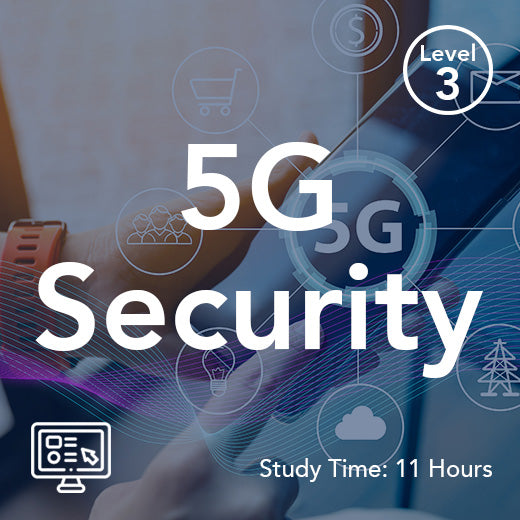
5G Security (On-Demand)
The nature of 5G means that the security architecture and processes need to cover new aspects (when compared to previous 3GPP generations), including 5GNR/LTE Dual Connectivity, standardized interfaces for distributed gNB / RAN architectures, more tightly integrated Non-3GPP Access, and most significantly, the new Service Based Interfaces used within the 5G Core. The 5G Security on-demand course provides a comprehensive grounding in this expanded set of security requirements and mechanisms used in 5G. We start by considering the 5G architecture in order to better understand the overall security requirements for both the UE and network. We then build on the security architecture of 4G LTE, with relevant modifications and additions required for 5G, before focusing squarely on the additional features and procedures required to secure the 5G Core Network (Service Based Interface). This self-paced on-demand distance learning course features illustrated course books, videos, tests and full tutor support. Who would benefit This course is designed for engineers, managers and other personnel who have a need to acquire a technical overview of the security environment employed within 5G networks. It will also be of benefit to those in the wider technical community who have a need to understand the security protocols employed by advanced cellular networks. Prerequisites An understanding of 4G (and legacy 2G and 3G) security procedures would be an advantage as would a basic understanding of 5G and / or LTE network architecture and functionality. Topic Areas Include 5G Architecture and the Service Based Interface 5G Security Architecture and Authentication and Key Agreement Security and the Service Based Interface (including SEPP)
£500.00
-

Strategy in Business (On-Demand)
Strategic decision-making is a key component of the vast majority of successful businesses, and the impact of those decisions is very likely to have a huge bearing on the success (or otherwise) of the organisation. Despite the intention that company strategy should drive and guide the mix of activities, and both focus and align efforts within appropriately configured units / departments, very few companies give it the time and attention needed to maximise the impact of good decision-making. This programme looks at each component of strategy in turn, with the decision-making process at the heart of a much more extensive set of activities need to maximise the impact of good strategy. We look at the nature of Strategy; building Awareness (industry, market, business dynamics, company-specific); strategic Analysis; strategy Development; strategy Execution; and key Performance Enablers. We draw all the relevant and varied information together, presenting it as a single flow of processes that can be used to drive successful strategy within any business, department or organisation. Who Would Benefit? These programmes deliver comprehensive training for employees at all levels within the organisation. They would benefit employees, mid-senior managers, directors, specialists, consultants and identified talent. Topics Covered: Understanding Strategy, Industry and Business Dynamics Understanding the Nature of Strategy Building Awareness Analysing the Market; Developing Strategy & Competitive Advantage, Strategy Execution, KPIS & OKRs Carrying Out Strategic Analysis Developing the Strategy Strategy Execution Key Performance Enablers
£95.00
-

Optimising Operations & Transformation (On-Demand)
Organisations tend to have a great deal of momentum – the bigger the organisation, the more difficult it can be to change, pivot and reposition. Even smaller business units can be very difficult to transform. Most successful businesses are in a constant state of flux, and they embrace change in order to optimise and pivot accordingly. Whether it is slow evolution, or larger initiatives that require fundamental reorganisation and refocusing of resources and people, the best businesses are able to drive those changes, embrace the new opportunities and maintain their agility and flexibility. This programme explores change within businesses / organisations – whether it is a case of optimising operations, or full-on transformation, we hit the key barriers and enablers for change, before exploring the change process and the role of the leader and key stakeholders. People issues are given a particular focus – in terms of individual and team factors, and the critical role that culture plays in the change process (and in the ongoing organisation). Exercises, case-studies, discussions and break-outs are used to reinforce learning, and to build confidence that participants need to effect positive change in the workplace – whatever size of organisation they work in. Topic Covered Include Key Principles – Optimising Operations and Transformation The Issue of Company Momentum Momentum – the Impact of Corporate Culture and DNA Momentum – Impact of Corporate Attitude to Risk Momentum and Risk – the Results Resistance to Change – Illustrated Understanding the Nature of Change Change – a Non-Stop Journey Evolving to Stay Relevant and Optimised
£95.00
-

Leadership in Business (On-Demand)
Being an effective leader is difficult. Some in leadership positions struggle with the basics, others have huge gaps in their understanding, and many restrict themselves to management activities - actively avoiding actual leadership wherever possible. In most cases, the confidence to lead effectively is in short supply, and those that do have the confidence often confuse dominance, or power, with leadership. However, organisations who see good leadership and culture as THE key enablers for their people, are the ones most likely to thrive and prosper – in whatever field they are operating in. This comprehensive programme builds a solid understanding of leadership and culture in business, giving current and aspiring leaders the confidence and tools needed to better engage, guide, develop, coach, organise, assess, and most critically, empower their people, teams and departments. We develop a deep understanding of leadership, including all key aspects related to ourselves as an effective leader; understanding and engaging with our people; developing successful teams; and influence as a primary foundation. We follow this by an extensive look at how we can successfully support and deploy our people whilst building a balanced culture that maximises success, enables innovation, and drives engagement at every level. Exercises, discussions, break-outs, case studies and examples are used throughout in order to maximise learning, build confidence, and establish the foundations for successful leadership. Topics Covered Include Leadership in Business / Organisations Developing Effective Teams Influence and Communication Supporting and Deploying Effective People – Culture and Innovation
£95.00
-
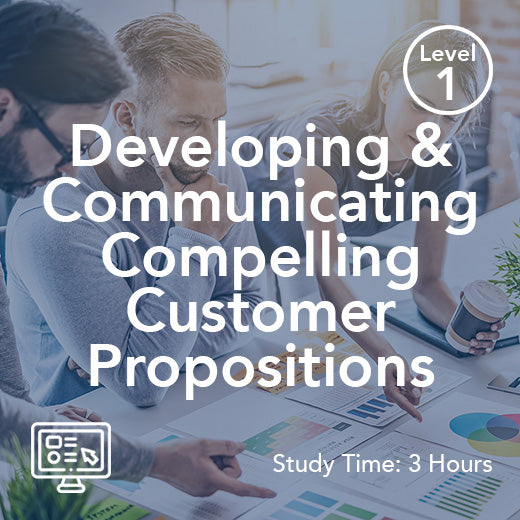
Developing and Communicating Compelling Customer Propositions (On-Demand)
For businesses to be successful, they need to align with their customers’ requirements in a number of key ways - but fundamentally it comes down to understanding the customer(s), creating compelling customer propositions, communicating those propositions, and enabling the value exchange. It encompasses product development, marketing and marketing communications, and business development / sales activities. This programme looks at the customer proposition holistically. It covers all the key elements needed to develop a sustainable business model that is tightly aligned with customer requirements, gets the right information in front of the right customers in an engaging and compelling way, and supports the overall strategy by delivering sustainable competitive advantage. We use exercises, case studies, break-outs and discussions to develop competencies and confidence, and the tools used will allow participants to apply the techniques to the workplace immediately. Topic Areas Include: Creating Compelling Customer Propositions Customers – Making Critical Choices Strategy and the Customer Proposition Customer Segments Products Brand Components of a Brand Pricing Expectation and Consistency The 80/20 Golden Rule Sales and Business Development Linking Marketing and sales – Lead Generation Sales – Common Objections Overcoming Common Objections Establishing a Sales Decision Process Responding to RFPs Telecoms Business Simulation Communicating Compelling Customer Propositions Channels to Market Key Elements of the Marketing Message The Psychology of Persuasion Segments, Profiles, Emotion Marketing Communications Online Marketing Marketing Systems and Frameworks Customer Retention and Loyalty Marketing Communications Plan Developing a Marketing Communications Plan Developing a Campaign for Lead Generation / Sales Assessing the Marketing and Communications Plan - KPIs International Marketing Market Research Marketing Resource
£95.00
-
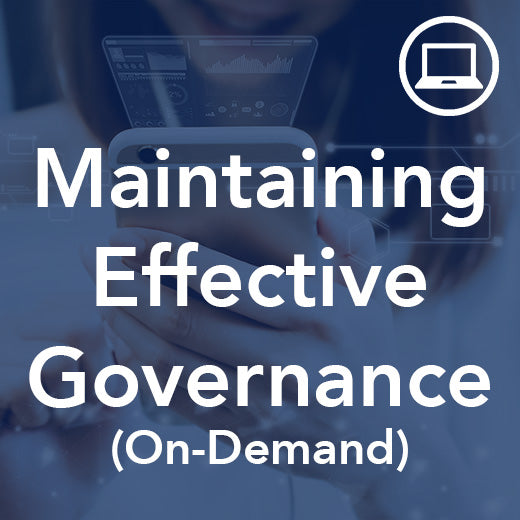
Maintaining Effective Governance (On-Demand)
Course Code LB06 Course Summary The business world is ever-changing, with focus shifting constantly as industries develop and evolve. Increasing requirement for good governance, however, has been a constant focus over a number of decades now. Companies that embrace good governance as part of their core value-system are invariably in a much better position as they scale, or as they expand /evolve their operating footprint to embrace new sectors or geographies. At its most effective, good governance, is felt throughout the organisation – with shareholders, employees and customers all more likely to engage in a positive and engaging way as the organisation develops. At its worst, bad governance directly contributes to dangerous working conditions or environmental disaster – and very likely, costly lawsuits, and competitive disadvantage. This short module is designed to complement our other business programmes by exploring key aspects of governance and what it all means for businesses. Comprehensive discussions and examples are used to illustrate the wide and varied topics covered, the critical focus areas within each topic, and how progressive governance can be used to positively impact, not only the business, but wider society. Prerequisites None Topics Covered include: Health and Safety Data Protection Ethical Financial Reporting Employment Practices Charity / Social Engagement Environment and Sustainability Aligning with the UN Sustainable Development Goals Consequential Thinking – The Four-Way Test Sustainability – Example Approached On-Demand Online Training Our self-paced on-demand distance learning programmes are accessible on any computer, tablet or smartphone and allow you to study at a time and location that is convenient to you. Each course includes: Illustrated Course Books - featuring leading edge knowledge from subject matter experts. Videos - Detailed videos expand the points covered in the course books, discussing topics in greater depth. Tutor Support – Dedicated course tutors are available to answer any questions you might have throughout your studies. Formative Assessment - Modules include regular quizzes to support learning by testing your knowledge of the subject matter. Certification– Successfully complete the end of module tests to earn Digital Badges to demonstrate the depth of your knowledge of the topic.
£95.00
-
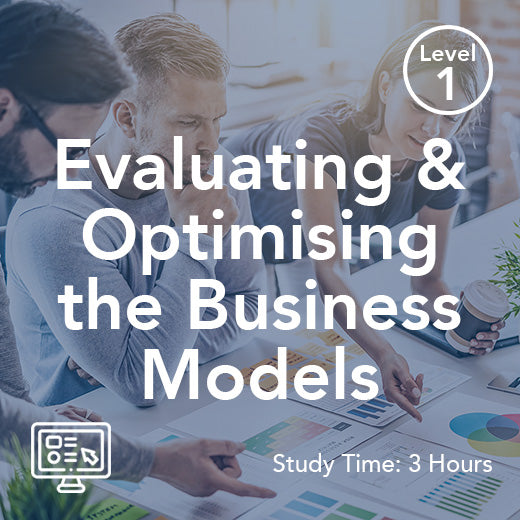
Evaluating and Optimising the Business Models (On-Demand)
Business models define a mix of activities required within a business to support a specific strategy. Collectively, one or more business models, aligned to a well-thought-out strategy, will deliver the competitive advantage needed to compete successfully in the market, and against any relevant competition. Business models are often complex, with multiple models running in parallel, and often in competition with each other within the business (in addition to the external competition). In this programme, we deconstruct the business model in order to fully understand its component parts before looking at how those parts can be optimally configured / reconfigured in order to maximise value creation and competitive advantage. We use examples, exercises and case studies to build a solid foundation that can be used within your own organisation to help drive success. Who Would Benefit? These programmes deliver comprehensive training for employees at all levels within the organisation. They would benefit employees, mid-senior managers, directors, specialists, consultants and identified talent. Topic Areas Include: Definitions and Components of a Business Model Business Model(s) – In the Bigger Picture Relationship - Strategy, Business Models and Operations Business Model Definition Understanding Value Extraction Developing The “Fit” of Activities – Examples Partnerships and the Business Model Customer Segments and Value Propositions Business Models – Options, Assessment and Development Understanding Value Business Model Disruption Business Model Adaptation Defining New Business Models Successful Examples for Redefined Business Models Business Models – The [Many] Options Explored
£95.00
-

Developing and Communicating Compelling Customer Propositions
For businesses to be successful, they need to align with their customers’ requirements in a number of key ways - but fundamentally it comes down to understanding the customer(s), creating compelling customer propositions, communicating those propositions, and enabling the value exchange. It encompasses product development, marketing and marketing communications, and business development / sales activities. This programme looks at the customer proposition holistically. It covers all the key elements needed to develop a sustainable business model that is tightly aligned with customer requirements, gets the right information in front of the right customers in an engaging and compelling way, and supports the overall strategy by delivering sustainable competitive advantage. We use exercises, case studies, break-outs and discussions to develop competencies and confidence, and the tools used will allow participants to apply the techniques to the workplace immediately. Topics Covered Creating Compelling Customer Propositions Customers – Making Critical Choices Strategy and the Customer Proposition Customer Segments Products Brand Components of a Brand Pricing Expectation and Consistency The 80/20 Golden Rule Communicating Compelling Customer Propositions Channels to Market Key Elements of the Marketing Message The Psychology of Persuasion Segments, Profiles, Emotion Marketing Communications Online Marketing Marketing Systems and Frameworks Customer Retention and Loyalty Marketing Communications Plan Developing a Marketing Communications Plan Developing a Campaign for Lead Generation / Sales Assessing the Marketing and Communications Plan - KPIs International Marketing Market Research Marketing Resources Sales and Business Development Linking Marketing and sales – Lead Generation Sales – Common Objections Overcoming Common Objections Establishing a Sales Decision Process Responding to RFPs Telecoms Business Simulation
£810.00
-

Optimising Operations and Transformation
Organisations tend to have a great deal of momentum – the bigger the organisation, the more difficult it can be to change, pivot and reposition. Even smaller business units can be very difficult to transform. Most successful businesses are in a constant state of flux, and they embrace change in order to optimise and pivot accordingly. Whether it is slow evolution, or larger initiatives that require fundamental reorganisation and refocusing of resources and people, the best businesses are able to drive those changes, embrace the new opportunities and maintain their agility and flexibility. This programme explores change within businesses / organisations – whether it is a case of optimising operations, or full-on transformation, we hit the key barriers and enablers for change, before exploring the change process and the role of the leader and key stakeholders. People issues are given a particular focus – in terms of individual and team factors, and the critical role that culture plays in the change process (and in the ongoing organisation). Exercises, case-studies, discussions and break-outs are used to reinforce learning, and to build confidence that participants need to effect positive change in the workplace – whatever size of organisation they work in. Prerequisites None Topic Covered Include Key Principles – Optimising Operations and Transformation The Issue of Company Momentum Momentum – the Impact of Corporate Culture and DNA Momentum – Impact of Corporate Attitude to Risk Momentum and Risk – the Results Resistance to Change – Illustrated Understanding the Nature of Change Change – a Non-Stop Journey Evolving to Stay Relevant and Optimised
POA: Private Course
-

Evaluating and Optimising the Business Models
Business models define a mix of activities required within a business to support a specific strategy. Collectively, one or more business models, aligned to a well-thought-out strategy, will deliver the competitive advantage needed to compete successfully in the market, and against any relevant competition. Business models are often complex, with multiple models running in parallel, and often in competition with each other within the business (in addition to the external competition). In this programme, we deconstruct the business model in order to fully understand its component parts before looking at how those parts can be optimally configured / reconfigured in order to maximise value creation and competitive advantage. We use examples, exercises and case studies to build a solid foundation that can be used within your own organisation to help drive success. Who Would Benefit? These programmes deliver comprehensive training for employees at all levels within the organisation. They would benefit employees, mid-senior managers, directors, specialists, consultants and identified talent. Prerequisites None Topics Covered Include Definitions and Components of a Business Model Business Model(s) – In the Bigger Picture Relationship - Strategy, Business Models and Operations Business Model Definition Understanding Value Extraction Developing The “Fit” of Activities – Examples Partnerships and the Business Model Customer Segments and Value Propositions Business Models – Options, Assessment and Development Understanding Value Business Model Disruption Business Model Adaptation Defining New Business Models Successful Examples for Redefined Business Models Business Models – The [Many] Options Explored
POA: Private Course
-

Leadership in Business
Being an effective leader is difficult. Some in leadership positions struggle with the basics, others have huge gaps in their understanding, and many restrict themselves to management activities - actively avoiding actual leadership wherever possible. In most cases, the confidence to lead effectively is in short supply, and those that do have the confidence often confuse dominance, or power, with leadership. However, organisations who see good leadership and culture as THE key enablers for their people, are the ones most likely to thrive and prosper – in whatever field they are operating in. This comprehensive programme builds a solid understanding of leadership and culture in business, giving current and aspiring leaders the confidence and tools needed to better engage, guide, develop, coach, organise, assess, and most critically, empower their people, teams and departments. We develop a deep understanding of leadership, including all key aspects related to ourselves as an effective leader; understanding and engaging with our people; developing successful teams; and influence as a primary foundation. We follow this by an extensive look at how we can successfully support and deploy our people whilst building a balanced culture that maximises success, enables innovation, and drives engagement at every level. Exercises, discussions, break-outs, case studies and examples are used throughout in order to maximise learning, build confidence, and establish the foundations for successful leadership. Prerequisites None Topics Covered Include Leadership in Business / Organisations Developing Effective Teams Influence and Communication Supporting and Deploying Effective People – Culture and Innovation
POA: Private Course
-

Maintaining Effective Governance
The business world is ever-changing, with focus shifting constantly as industries develop and evolve. Increasing requirement for good governance, however, has been a constant focus over a number of decades now. Companies that embrace good governance as part of their core value-system are invariably in a much better position as they scale, or as they expand /evolve their operating footprint to embrace new sectors or geographies. At its most effective, good governance, is felt throughout the organisation – with shareholders, employees and customers all more likely to engage in a positive and engaging way as the organisation develops. At its worst, bad governance directly contributes to dangerous working conditions or environmental disaster – and very likely, costly lawsuits, and competitive disadvantage. This short module is designed to complement our other business programmes by exploring key aspects of governance and what it all means for businesses. Comprehensive discussions and examples are used to illustrate the wide and varied topics covered, the critical focus areas within each topic, and how progressive governance can be used to positively impact, not only the business, but wider society. Prerequisites None Topics Covered include: Health and Safety Data Protection Ethical Financial Reporting Employment Practices Charity / Social Engagement Environment and Sustainability Aligning with the UN Sustainable Development Goals Consequential Thinking – The Four-Way Test Sustainability – Example Approached
POA: Private Course
-

Strategy in Business
Strategic decision-making is a key component of the vast majority of successful businesses, and the impact of those decisions is very likely to have a huge bearing on the success (or otherwise) of the organisation. Despite the intention that company strategy should drive and guide the mix of activities, and both focus and align efforts within appropriately configured units / departments, very few companies give it the time and attention needed to maximise the impact of good decision-making. This programme looks at each component of strategy in turn, with the decision-making process at the heart of a much more extensive set of activities need to maximise the impact of good strategy. We look at the nature of Strategy; building Awareness (industry, market, business dynamics, company-specific); strategic Analysis; strategy Development; strategy Execution; and key Performance Enablers. We draw all the relevant and varied information together, presenting it as a single flow of processes that can be used to drive successful strategy within any business, department or organisation. Who Would Benefit? These programmes deliver comprehensive training for employees at all levels within the organisation. They would benefit employees, mid-senior managers, directors, specialists, consultants and identified talent. Prerequisites None Topics Covered: Understanding Strategy, Industry and Business Dynamics Understanding the Nature of Strategy Building Awareness Analysing the Market; Developing Strategy & Competitive Advantage, Strategy Execution, KPIS & OKRs Carrying Out Strategic Analysis Developing the Strategy Strategy Execution Key Performance Enablers
POA: Private Course
-

Business Finance – For Non-Financial Managers (On-Demand)
All successful employees, managers and leaders who want to maximise their contribution within the business or organisation need a solid grasp of finances. Whether they are talking strategy, budgets, or customer propositions, it is inevitably the finances that drive the decisions and determine how performance is measured. Being financially literate gives the individual a fundamental business tool, as well as the credibility, to help drive success and to maximise value creation. KPIs can be properly evaluated, major decisions can be grounded in financial reality, and both forecasting and reporting can be used more reliably to help guide efforts and provide the required focus for departments and teams. A key aspect often overlooked, is that greater confidence in both the financial position, and the control mechanisms that are available to employees and managers, will enhance a leader’s risk-awareness. In turn (depending on a range of other factors), this can be a key enabler for business culture that embraces greater levels of creativity and value creation. This programme provides a comprehensive foundation in business finance – covering all the major areas needed to be a fully-functioning member of the mid-senior management team. It is ideal for current or aspiring managers, specialists with financial responsibility, or identified talent / graduates. Although financial principles do not change, they can be applied in very specific ways, depending on the industry / organisation. Examples, case studies and exercises are tailored accordingly Topic Areas Include: The Financial Cycle and Reporting Key Accounting Concepts The Company Operating (Finance) Cycle Three Principal Accounting Documents KPIs, Ratios and Financial Analysis Understanding Finance Key Financial Ratios – Categories and Examples Profitability Efficiency Equity, Loans, and Gearing / Leverage Valuation - Controlling Investment Financial Control, Budgets and Evaluating Initiatives / Projects The Importance of Budgeting and Forecasting Budgets – Getting Specific Mitigating Bad Budget Culture (Teams Aiming for 100% Budget Spend) Understanding Return on Investment (ROI) Cumulative Cash Flows Calculating ROI and using Net Present Value (NPV) Assessing Projects and Using NP
£95.00
-

Business Finance – For Non-Financial Managers
All successful employees, managers and leaders who want to maximise their contribution within the business or organisation need a solid grasp of finances. Whether they are talking strategy, budgets, or customer propositions, it is inevitably the finances that drive the decisions and determine how performance is measured. Being financially literate gives the individual a fundamental business tool, as well as the credibility, to help drive success and to maximise value creation. KPIs can be properly evaluated, major decisions can be grounded in financial reality, and both forecasting and reporting can be used more reliably to help guide efforts and provide the required focus for departments and teams. A key aspect often overlooked, is that greater confidence in both the financial position, and the control mechanisms that are available to employees and managers, will enhance a leader’s risk-awareness. In turn (depending on a range of other factors), this can be a key enabler for business culture that embraces greater levels of creativity and value creation. This programme provides a comprehensive foundation in business finance – covering all the major areas needed to be a fully-functioning member of the mid-senior management team. It is ideal for current or aspiring managers, specialists with financial responsibility, or identified talent / graduates. Although financial principles do not change, they can be applied in very specific ways, depending on the industry / organisation. Examples, case studies and exercises are tailored accordingly Topic Areas Include The Financial Cycle and Reporting Key Accounting Concepts The Company Operating (Finance) Cycle Three Principal Accounting Documents KPIs, Ratios and Financial Analysis Understanding Finance Key Financial Ratios – Categories and Examples Profitability Efficiency Equity, Loans, and Gearing / Leverage Valuation - Controlling Investment Financial Control, Budgets and Evaluating Initiatives / Projects The Importance of Budgeting and Forecasting Budgets – Getting Specific Mitigating Bad Budget Culture (Teams Aiming for 100% Budget Spend) Understanding Return on Investment (ROI) Cumulative Cash Flows Calculating ROI and using Net Present Value (NPV) Assessing Projects and Using NPV
POA: Private Course
-
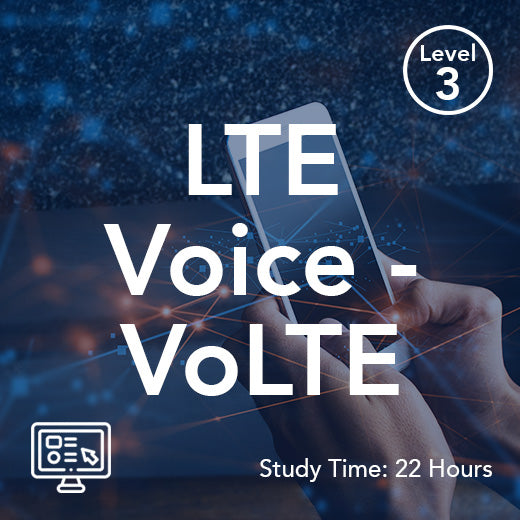
LTE Voice - VoLTE (On-Demand)
Our LTE Voice (VoLTE) training course is designed to provide a comprehensive technical understanding of how VoIP services are delivered using LTE and the IP Multimedia Subsystem. This course is ideal for engineering and technical management professionals looking to gain in-depth knowledge of the options available in LTE for delivering voice and real-time traffic through VoIP. Topics covered in this course include a technical overview of LTE, introduction to LTE voice options, IP Multimedia Subsystem (IMS) overview, Voice over LTE (VoLTE) system architecture, VoLTE protocols, services, and codecs, VoLTE call setup procedures, SRVCC, SMS delivery over IMS, VoLTE emergency calls, and Voice over Wi-Fi. This self-paced on-demand distance learning course features illustrated course books, videos, tests and full tutor support. Who would benefit This course is suitable for engineering and technical management staff who require a technical description of the options that exist in LTE for delivering voice and other real-time traffic types by means of VoIP. Prerequisites Attendance on this course assumes previous attendance on the LTE Engineering Overview course (LT3600) or equivalent basic LTE knowledge (although a recap of basic LTE architecture and concepts is provided at the start of the course) and also assumes a working knowledge of IP. Topic Areas Include Technical overview of LTE Introduction to the options for LTE voice Technical overview of the IP Multimedia Subsystem (IMS) System architecture for Voice over LTE (VoLTE) VoLTE protocols, services and codecs VoLTE power-on and registration procedures VoLTE call setup procedures Access domain selection Single Radio Voice Call Continuity (SRVCC) Delivery of SMS messages over the IMS VoLTE emergency calls Voice over Wi-Fi
£750.00
-
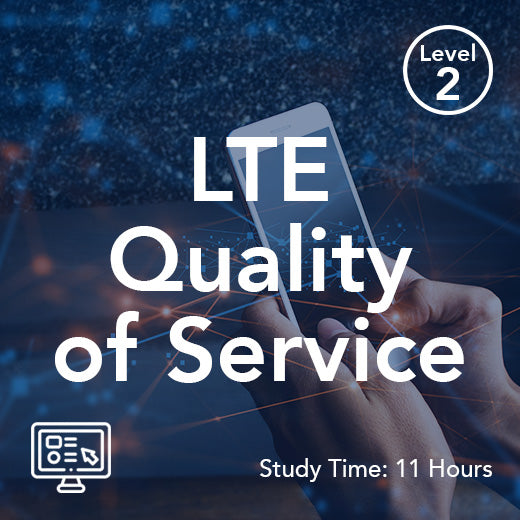
LTE Quality of Service (On-Demand)
Our LTE Quality of Service training course is designed to provide a comprehensive understanding of the key concepts and principles behind Quality of Service (QoS) in LTE networks. This course delves into the End-to-End EPS Bearer and the underlying Transport Network Layer (TNL) where QoS is crucially applied. Participants will explore the main QoS concepts and learn about the interworking between LTE QoS and other network types such as UMTS, GPRS, and IMS.This course is ideal for engineering and technical management professionals who need a technical overview of the technologies and techniques utilized by 4G LTE networks to define and control the QoS for user connections. Participants are expected to have an engineering background with some knowledge of telecommunications technologies and protocols. Previous LTE training and familiarity with QoS mechanisms in legacy 2G and 3G networks would be beneficial.By enrolling in this course, you will gain insights into topics such as E-UTRAN architecture and interfaces, EPS Bearer and PDN Connectivity options, LTE QoS parameters, QCI, ARP, QoS Management, LTE PCC mechanisms, TNL concepts, DiffServ, MPLS, Ethernet QoS, and much more. Enhance your knowledge and skills in LTE QoS with our expert-led training course. This self-paced on-demand distance learning course features illustrated course books, videos, tests and full tutor support. Who would benefit This course is suitable for engineering and technical management staff who require a technical overview of the technologies and techniques employed by 4G LTE networks to define and control the QoS applied to user connections. Prerequisites An engineering background with some knowledge of telecommunications technologies and protocols is assumed and previous LTE training would be beneficial, as would knowledge of QoS mechanisms in legacy 2G and 3G networks. Topic Areas Include E-UTRAN architecture and interfaces EPS Bearer and PDN Connectivity options and operations User plane connection concepts, packet flows, SDFs and Traffic Flow Aggregates LTE QoS parameters, QCI, ARP QoS parameter representation in LTE signalling protocols QoS Management – TFTs and packet filters LTE PCC (Policy and Charging Control) mechanisms PCC Rules, function and structure Interaction between PCC elements and internal and external network nodes Mapping LTE QoS to legacy network schemes Measuring QoS TNL concepts, architecture and QoS mechanisms DiffServ, MPLS and Ethernet QoS End-to-End QoS Architecture and Operation Network node QoS functions QoS influence on LTE handovers
£500.00
-
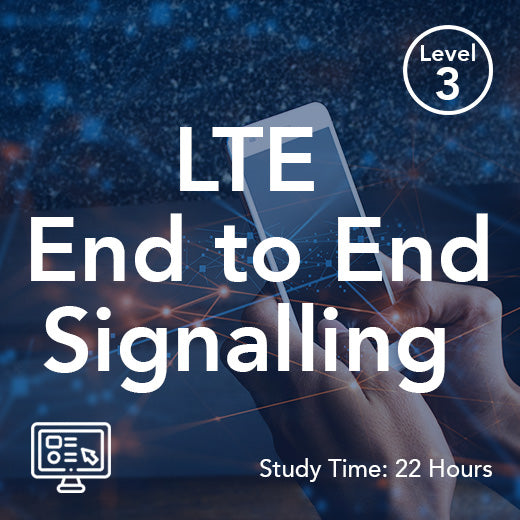
LTE End-to-End Signalling (On-Demand)
This course is designed to provide an end-to-end view of the whole set of signalling messages that support some of the most fundamental LTE network operations, such as: initial attach, PDN Connectivity, EPS Bearer setup, bearer resource allocation, handover and detach. Each procedure is presented in terms of the progression of signalling messages exchanged and each message is explored in detail. The course provides details of messages belonging to the following signalling protocols: RRC, NAS, S1AP, X2AP, GTPv2-C and also the Diameter S6a, S13 and Gx applications. Our LTE End-to-End Signalling Training Course (Course Code: LT1301) offers a comprehensive overview of the signalling messages involved in key LTE network operations. From initial attach to handover and detach procedures, participants will gain a deep understanding of the signalling protocols including RRC, NAS, S1AP, X2AP, GTPv2-C, and Diameter S6a, S13, and Gx applications. This course is ideal for engineers, managers, and personnel seeking a technical overview of the complete LTE signalling environment, providing valuable insights into the management of fundamental LTE procedures. Participants in this course will benefit from a detailed exploration of air interface signalling protocols, E-UTRAN signalling protocols, and EPC signalling protocols. Topics covered include initial attach procedures, idle mode procedures, connected mode procedures, handover procedures, and detach procedures. Prerequisites include a basic understanding of LTE network architecture, services, and protocols, which can be acquired through our LTE Engineering Overview and LTE Evolved Packet Core Network (LT3604) courses. An understanding of IP would also be beneficial for participants. Gain the knowledge and skills needed to navigate the complexities of LTE signalling protocols and procedure This self-paced on-demand distance learning course features illustrated course books, videos, tests and full tutor support. Who would benefit This course is designed for engineers, managers and other personnel who have a need to acquire a technical overview of the total LTE signalling environment (not just signalling in one part of the network) and also those that require an end-to-end view of the management of fundamental LTE procedures. Prerequisites A basic understanding of LTE network architecture, services and protocols, which can be gained from attending the LTE Engineering Overview (LT3600) and LTE Evolved Packet Core Network (LT3604) courses. An understanding of IP would be beneficial. Topic Areas Include Air interface signalling protocols E-UTRAN signalling protocols EPC signalling protocols Initial attach procedures Idle mode procedures S1 release Tracking area update procedure Service request procedure with ISR enabled Extended service request for CS fallback Connected mode procedures Connection establishment, modification and release Bearer resource allocation triggering dedicated EPS bearer establishment Bearer resource modification triggering EPS bearer modification PDN connectivity request Handover procedures X2-based handover with direct forwarding S1-based handover with S-GW change with indirect forwarding Inter-System PS handover to UMTS/HSPA without forwarding Detach procedures
£750.00
-
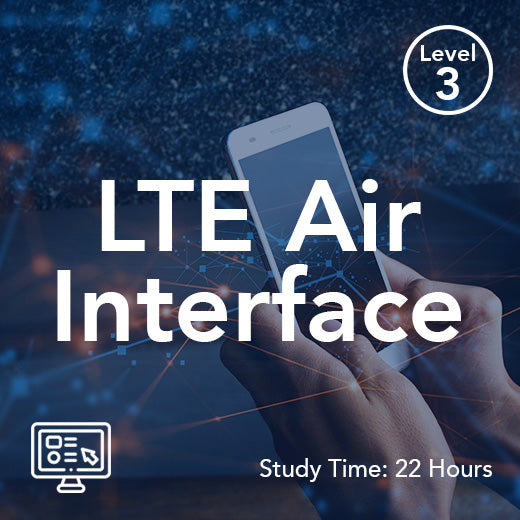
LTE Air Interface (On-Demand)
Our LTE Air Interface Training Course is designed to provide a comprehensive understanding of the air interface for LTE radio access. This course covers OFDMA principles, access and non-access stratum protocols, channel structures, connectivity and mobility management procedures, as well as radio link control functions. Engineers involved in equipment design, operation, optimization, or monitoring of the LTE radio link will benefit greatly from this training. Participants are expected to have an engineering background with some knowledge of digital radio systems and general radio principles and techniques. A basic understanding of LTE and experience with 2G or 3G systems would also be beneficial. Topics covered in the course include LTE system architecture, E-UTRAN architecture and interfaces, OFDMA/SC-FDMA basic principles, MIMO concepts and implementation, physical layer structures, access and non-access stratum protocols, and more. Enhance your knowledge and skills in LTE radio access and stay ahead in the rapidly evolving telecommunications industry. This self-paced on-demand distance learning course features illustrated course books, videos, tests and full tutor support. Who would benefit Engineers involved with equipment design, operation, optimization or monitoring of the LTE radio link. Prerequisites An engineering background with some knowledge of digital radio systems and general radio principles and techniques is assumed. A basic understanding of LTE and experience of 2G or 3G systems would be beneficial. Topic Areas Include LTE system architecture E-UTRAN architecture and interfaces OFDMA/SC-FDMA basic principles Defining orthogonality OFDMA features and benefits The Fourier transform OFDMA/SC-FDMA transmitter and receiver chains Modulation and coding, MIMO and the Cyclic Prefix MIMO concepts and implementation Physical layer structures Access and non-access stratum protocols Logical, Transport and Physical channels RRC, PDCP, MAC and RLC functions Resource allocation and scheduling strategies LTE-Advanced concepts Lower layer procedures Connection establishment Radio resource management procedures
£950.00
-
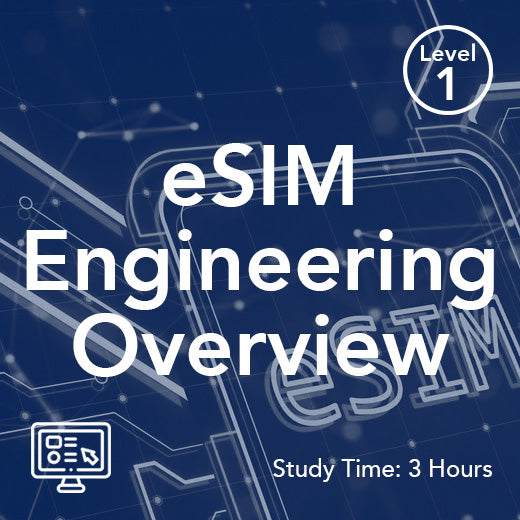
eSIM Engineering Overview (On-Demand)
Our eSIM Engineering Overview Training Course provides a comprehensive technical overview of eSIM technology and the latest remote SIM provisioning specifications from GSMA. This course delves into the role of the SIM, the transition from physical to digital, system architectures for both M2M and Consumer applications, the evolution of eSIM, and a glimpse into the future of this technology. Engineers, product managers, and other professionals seeking to implement eSIM-based products and services will benefit greatly from this course. Participants are expected to have a general engineering background with some knowledge of GSM SIM technology. While not mandatory, a basic understanding of mobile networks would be advantageous. The course covers essential topics such as Introduction to eSIM, GSMA Consumer eSIM Specification, GSMA M2M eSIM Specification, GSMA Consumer eSIM Specification Enhancements, and The Future of eSIM. This self-paced on-demand distance learning course features illustrated course books, videos, tests and full tutor support. Who would benefit The course is intended for engineers, product managers and other staff who are looking to prepare for or actively roll out eSIM-based products and services within their organisations. Prerequisites A general engineering background with some knowledge of GSM SIM technology is assumed. A basic understanding of mobile networks would be desirable. Topic Areas Include Introduction to eSIM GSMA Consumer eSIM Specification GSMA M2M eSIM Specification GSMA Consumer eSIM Specification Enhancements The Future of eSIM
£95.00
-
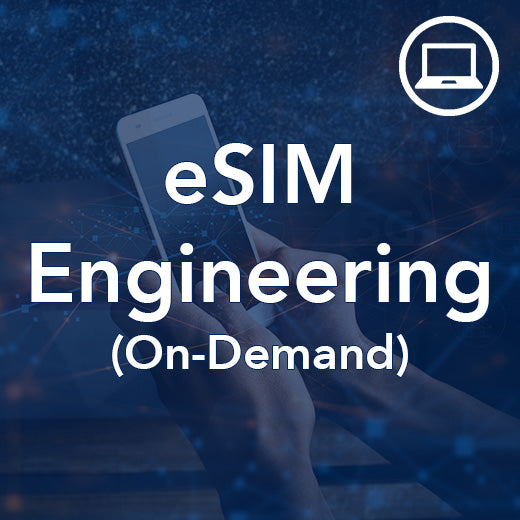
eSIM Engineering (On-Demand)
The eSIM Engineering Training Course offered by Wray Castle provides a comprehensive technical overview of eSIM technology and the latest remote SIM provisioning specifications from GSMA. This course delves into the transition of the SIM from physical to digital realms, exploring unique system architectures for both M2M and Consumer applications. Participants will gain insights into the evolution of eSIM technology and a glimpse into the future developments in this field. Engineers, product managers, and other professionals seeking to implement eSIM-based products and services within their organizations will greatly benefit from this course. A general engineering background with some knowledge of GSM SIM technology is assumed, and a basic understanding of mobile networks would be advantageous. The course covers essential topics such as the introduction to eSIM, GSMA Consumer eSIM Specification, GSMA M2M eSIM Specification, enhancements in the Consumer eSIM Specification, and the future prospects of eSIM technology. This self-paced on-demand distance learning course features illustrated course books, videos, tests and full tutor support. Who would benefit The course is intended for engineers, product managers and other staff who are looking to prepare for or actively roll out eSIM-based products and services within their organisations. Prerequisites A general engineering background with some knowledge of GSM SIM technology is assumed. A basic understanding of mobile networks would be desirable. Topic Areas Include Introduction to eSIM GSMA Consumer eSIM Specification GSMA M2M eSIM Specification GSMA Consumer eSIM Specification Enhancements The Future of eSIM
£1,815.00
-
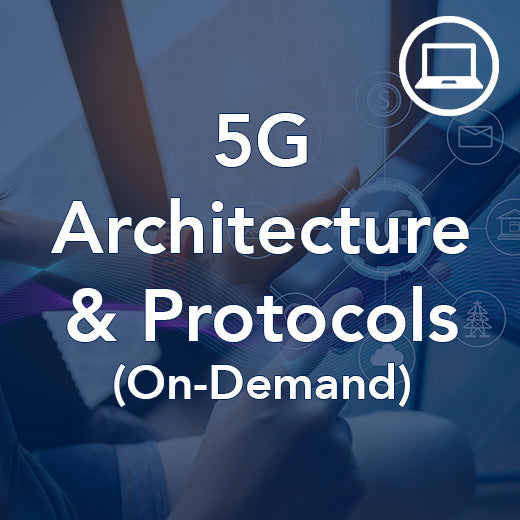
5G Architecture and Protocols (On-Demand)
This 5G Architecture and Protocols on-demand course is a detailed technical description of the core and radio access networks of 5G. It covers the architecture and interfaces used by 5G, the protocols used for signalling and data transport, the provision of services over a 5G network, and the procedures for signalling and system operation. This self-paced on-demand distance learning course features illustrated course books, videos, tests and full tutor support. Who would benefit The course is intended for engineers and other staff who are involved with the architecture, optimization, management, monitoring or testing of the 5G network. Prerequisites An engineering background with some knowledge of core and radio access network technologies is assumed. A basic understanding of 5G and experience of LTE networks would be desirable. Topic Areas Include: 5G introduction, use cases and standardisation Radio access network architecture and deployment options Network architectures for dual connectivity Architecture of the 5G core network Network Function virtualisation, slicing and orchestration Interworking and compatibility between 5G, LTE and Wi-Fi PDU connectivity, Quality of Service and service provision Control plane and user plane protocols in the 5G network Implementation of network function services using HTTP/2 Signalling procedures for registration, security and session management Network operation in Idle, Inactive and Connected modes
£1,815.00
-
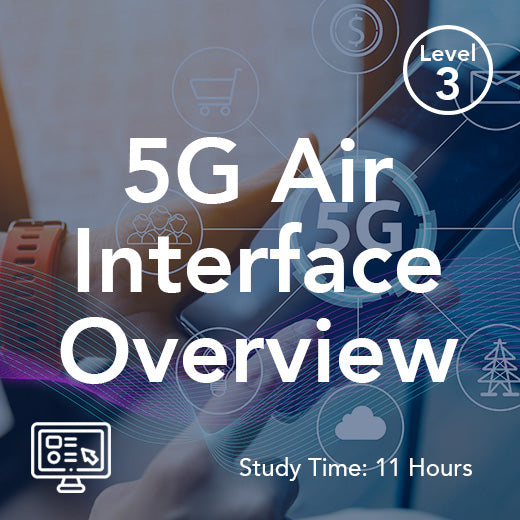
5G Air Interface Overview (On-Demand)
This 5G Air Interface Overview training course provides a technical introduction to the 5G New Radio. Participants will gain insight into the design goals, development schedule, principles, design, and implementation of the 5G air interface. Engineers who are new to or already working in mobile radio communications will benefit from this course, which assumes familiarity with telecommunications and general engineering terminology. Some understanding of LTE cellular systems would also be beneficial for attendees. During this course participants will delve into various topic areas related to 5G, including key features and standardization, use cases, performance objectives, deployment options, radio spectrum, millimeter-wave communications, principles of radio transmission and reception, multiple antennas, air interface protocol stack, architecture of the air interface physical layer, and procedures for data transmission and reception on the 5G air interface. This self-paced on-demand distance learning course features illustrated course books, videos, tests and full tutor support. Who would benefit This course is intended for engineers either new to, or already working in, mobile radio communications. Prerequisites Familiarity with telecommunications and general engineering terminology is assumed. Some understanding of LTE cellular systems would be beneficial. Topic Areas Include: 5G introduction, key features and standardisation Use cases and performance objectives Non-standalone and standalone deployment options Radio spectrum and millimetre wave communications Principles of radio transmission and reception in 5G Multiple antennas in 5G Air interface protocol stack Architecture of the air interface physical layer Procedures for data transmission and reception on the 5G air interface.
£500.00
-
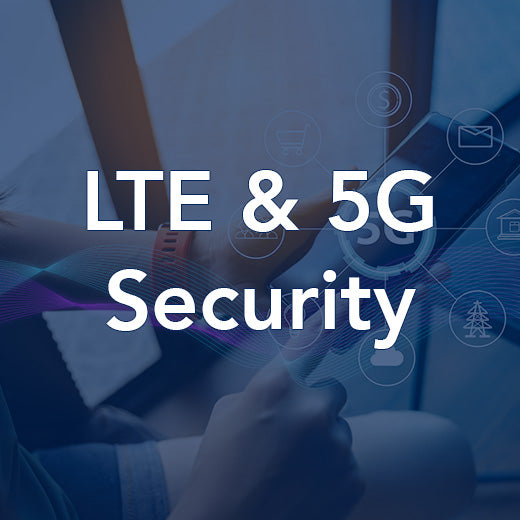
LTE and 5G Security
LTE and 5G systems are becoming increasingly essential in our daily lives, serving as the backbone for future communications and connected devices. As these technologies continue to evolve, the need for robust security measures becomes paramount. The LTE and 5G Security Training Course offered by Wray Castle provides a comprehensive overview of the security environment within LTE and 5G networks, covering key topics such as LTE Authentication and Key Agreement, security procedures, and 5G security architectures. Designed for engineers, managers, and other professionals looking to gain a technical understanding of LTE and 5G network security, this course delves into critical areas such as Access and Core Network security, 5G key derivation, and authentication procedures. Whether you are directly involved in the telecommunications industry or simply want to enhance your knowledge of cellular network security protocols, this course offers valuable insights into the evolving landscape of mobile security. By enrolling in this course, participants will gain a solid foundation in LTE and 5G security, equipping them with the knowledge and skills needed to navigate the complexities of modern mobile networks. Whether you are a seasoned telecom professional or new to the field, this training programme will provide you with the tools to stay ahead in an increasingly interconnected world. Who would benefit This course is designed for engineers, managers and other personnel who have a need to acquire a technical overview of the security environment employed within LTE and 5G networks. It will also be of benefit to those in the wider technical community who have a need to understand the security protocols employed by cellular networks. Prerequisites Attendance on, or equivalent knowledge, LTE Engineering or 5G Engineering would be useful. Alternatively, experience working in this area of telecoms. Topic Areas Include LTE Security Architecture Authentication and Key Agreement Evolution to 5G 5G Non-Standalone Mode Security 5G Standalone Mode Security Also available as a Self-Study Online Learning Programme, learn more.
POA: Private Course
-
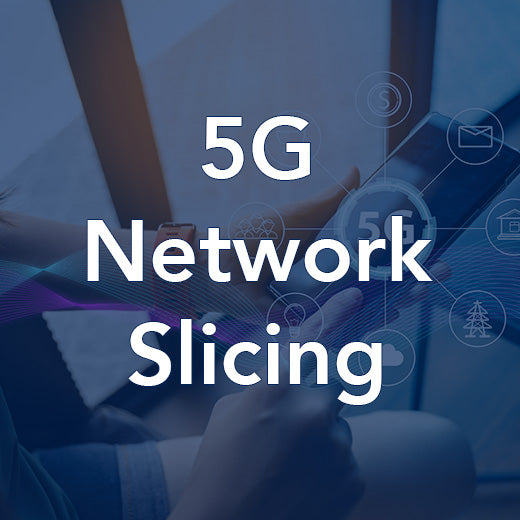
5G Network Slicing
This 5G Network Slicing course examines 5G network slicing and those topics that impact and drive slice strategy. Service and Industry requirements are explored, as well as use case performance objectives. Technical aspects of 5G slice operation are followed by an appraisal of the techniques available to map the requirements onto a practical slice. A generic slice template, and associated attributes, are then used to generate an example slice specification. Finally, practical slice deployment and management options are investigated. Examples are used throughout. Note – Although standard slice identities have been specified, slicing defines a set of techniques that enable operators to differentiate their service offerings. Hence, any “standard” slice templates should be considered as a proprietary solution. This course does NOT attempt to build or provide any such standard slice templates, but will enable participants to better assess slice strategy and evaluate specific solutions. This 5G Network Slicing training course delves into the complexities of 5G network slicing and the various factors that influence slice strategy. From exploring service and industry requirements to understanding use case performance objectives, participants will gain a comprehensive overview of the technical aspects of 5G slice operation. The course also covers techniques for mapping requirements onto practical slices, creating example slice specifications using a generic template, and exploring deployment and management options. Throughout the course, real-life examples are used to enhance understanding and application. Designed for professionals involved in the design, deployment, and commercialization of 5G networks, this course offers valuable insights into the intricacies of network slicing. While the course begins with an introduction to 5G and use case requirements, it primarily focuses on the technical aspects of network slicing. Prior experience or knowledge of the 5G system from a technical perspective would be beneficial for participants looking to maximize their learning outcomes. By the end of the course, participants will be equipped with the knowledge and skills needed to assess slice strategy and evaluate specific solutions effectively. Topics covered in this training course include an introduction to 5G, use cases, and connectivity, an in-depth exploration of 5G slicing, and practical guidance on slice development and deployment. Participants will gain a solid understanding of network slicing principles and techniques, enabling them to make informed decisions and contribute effectively to the successful implementation of 5G networks. Who would benefit This course is designed for those involved in the design, deployment and commercialisation of 5G. Prerequisites Although we begin with an introduction to 5G and use case requirements, the course focuses on the technical aspects of network slicing, so some experience or knowledge of the 5G system from a technical perspective would be an advantage. Topic Areas Include Introduction to 5G, Use Cases and Connectivity 5G Slicing Slice Development and Deployment Optional 5G Virtual Lab Module Explore, Test, Optimise, and Troubleshoot the 5G System Deep dive into the key signalling scenarios in the 5G system and analyse the output to build a deeper understanding that goes beyond the theoretical. The lab is a fully emulated 5G System environment that enables you to experiment with the configurations for Network Functions and build customized settings for signalling scenarios that helps you to develop greater insight into the operation of the 5G System. Lab modules can be added to any relevant 5G course. Learn more and arrange a demo.
POA: Private Course
-
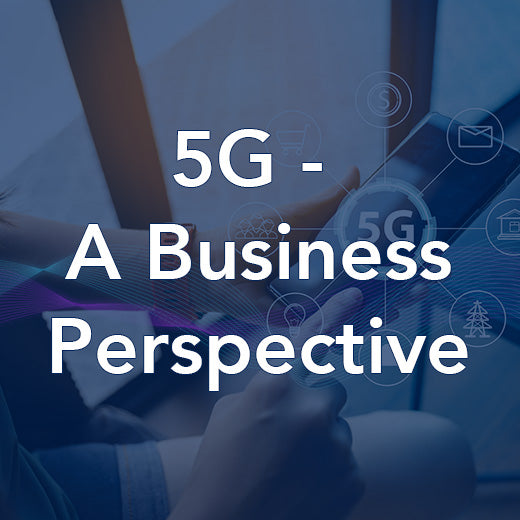
5G - A Business Perspective
The 5G - A Business Perspective course is designed to provide a comprehensive understanding of the commercial aspects of 5G and how it can benefit telcos, emerging players in the communications industry, and other related sectors. By delving into the technology behind 5G, including New Radio, NG-RAN, and SBA (Service Based Architecture), participants will learn how to leverage its capabilities to drive flexibility, cost-effectiveness, diverse deployment scenarios, and new use cases to support existing and emerging business models. Discover the next phase of connectivity and connected innovation with our expert-led sessions that will help you navigate the evolving landscape of 5G. Gain valuable insights into the role 5G plays in enabling new business models and opportunities, and learn how to strategize and implement 5G initiatives within your organization. Whether you have a technical or commercial background in telecommunications or adjacent industries, this course will equip you with the knowledge and skills needed to maximize the potential of 5G technology and stay ahead in the competitive market. Prerequisites In order to gain maximum benefit, participants should have a relatively rounded background in telecommunications or adjacent industries (whether technical, commercial, or both). Topic Areas Include The Telecoms Environment 5G as a Key Business Enabler for Ongoing Connectivity 5G – A Framework for Cost Control Connected Innovation – A New Universe for Connectivity Supporting New Use Cases 5G Strategy
£1,815.00
-
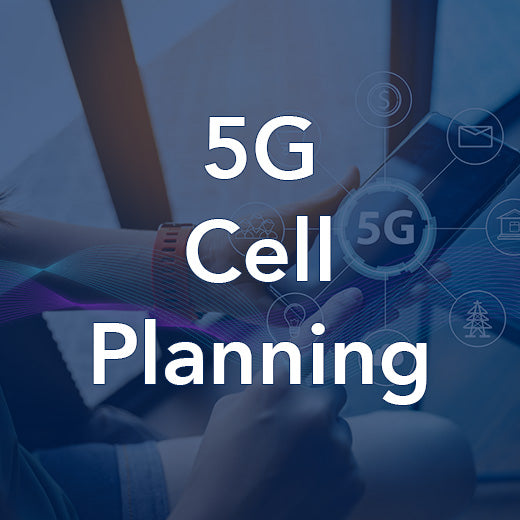
5G Cell Planning
Our 5G Cell Planning training course is designed to provide network planning engineers with the essential knowledge and skills needed to effectively plan radio access networks for 5G. Through practical worked examples and in-depth discussions, participants will gain a solid understanding of coverage and capacity estimations, RF KPIs, signal measurements, and parameters that impact the random access process. By the end of the course, students will be equipped with the theoretical knowledge and practical tools to confidently plan 5G cells and optimize network performance. Whether you are new to 5G cell planning or looking to enhance your existing skills, this training programme is suitable for anyone with a background in telecommunication systems and radio network planning. Join us and take your 5G cell planning expertise to the next level. Don't miss out on the opportunity to advance your career in 5G cell planning. Enroll in our live online training course today and gain valuable insights into the fundamentals of the 5G air interface, link budget estimation, coverage estimation, capacity estimation, and more. For a self-paced learning option, check out our On-Demand Training Programme and start mastering 5G cell planning at your own pace. Who Would Benefit This course is intended for network planning engineers, who wish to learn about the issues that are involved when planning radio access networks for 5G. Prerequisites The course assumes familiarity with telecommunication systems and with the principles of radio network planning. Some understanding of radio network planning for LTE, and of the 5G air interface, would be beneficial. Topic Areas Include Fundamentals of the 5G Air Interface Link Budget Estimation Coverage Estimation Capacity Estimation RSRP, RSRQ and SINR Parameter Setting Also available as a Self-Paced Online Training Programme, learn more.
POA: Private Course
-

Wi-Fi and Cellular Convergence
Wi-Fi and cellular convergence is a crucial aspect of modern communication networks, allowing seamless integration between Wi-Fi and cellular technologies. This course, with the course code WR1401, provides a comprehensive overview of the 802.11 family of wireless LAN technologies, commonly known as Wi-Fi. Participants will gain insights into the different forms of Wi-Fi in use, as well as a detailed understanding of the structure, operation, and functionality of Wi-Fi connections. Moreover, the course delves into the integration of Wi-Fi access into cellular provider portfolios and explores techniques for interworking between different access environments. This training is ideal for communications professionals involved in Wi-Fi network design and administration, as well as those responsible for deploying and maintaining Wi-Fi systems. Participants should ideally have a basic understanding of cellular networks and a keen interest in learning about Wi-Fi technologies. By the end of the course, attendees will have a solid grasp of wireless LAN technologies and standards, the protocol stack layers, Wi-Fi security, deployment, and integration strategies. In just 1 day and 2 live online sessions from 0900 to 1230, participants can enhance their knowledge and skills in Wi-Fi and cellular convergence. Don't miss this opportunity to stay ahead in the ever-evolving world of wireless communication technologies. Course Summary This course presents an overview of the 802.11 family of wireless LAN technologies that are more commonly known as Wi-Fi. The course introduces the various forms of Wi-Fi currently in use and looks in detail at the structure, operation and functionality of Wi-Fi connections. It then examines issues related to the integration of Wi-Fi access into cellular provider’s portfolios and techniques that allow interworking between the access environments. Who would benefit This course is suitable for communications professionals involved in Wi-Fi network design and administration, and also those involved in deploying and maintaining Wi-Fi based systems. Prerequisites Delegates should ideally have an understanding of cellular networks and a keen interest in understanding Wi-Fi technologies. Topic Areas Include Wireless LAN Technologies and Standards The Protocol Stack Layer 1 The Protocol Stack Layer 2 Wi-Fi Security Wi-Fi Deployment and Integration
POA: Private Course
-
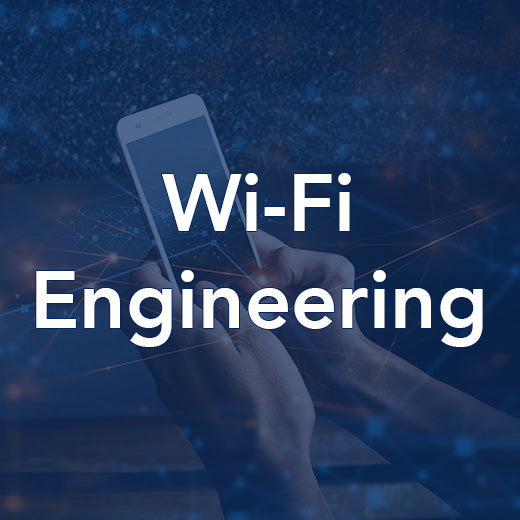
Wi-Fi Engineering Overview
This Wi-Fi Engineering Overview course provides a comprehensive understanding of the 802.11 family of wireless LAN technologies, commonly known as Wi-Fi. Participants will gain insights into the different forms of Wi-Fi networks currently in use, as well as a detailed examination of the structure, operation, and functionality of Wi-Fi connections. The course also covers essential security mechanisms to safeguard Wi-Fi networks and addresses common Wi-Fi problems and troubleshooting techniques. Ideal for communications professionals involved in Wi-Fi network design, administration, deployment, and maintenance, this course equips participants with the knowledge and skills needed to effectively manage Wi-Fi-based systems. While a background in telecommunications or Information Technology is beneficial, individuals with a keen interest in technology can also benefit from this course. Key topic areas covered in this course include Wireless LAN Technologies and Standards, 802.11 PHY, MAC Frame Structures, MAC Procedures, Security measures, and Wi-Fi Troubleshooting. By the end of the 2-day course comprising 4 live online sessions, participants will have a solid foundation in Wi-Fi engineering and be better equipped to handle the complexities of Wi-Fi networks. Course Summary This course presents an overview of the 802.11 family of wireless LAN technologies that are more commonly known as Wi-Fi. The course introduces the various forms of Wi-Fi currently in use and looks in detail at the structure, operation and functionality of Wi-Fi connections. It then examines the security mechanisms required to protect a Wi-Fi network. Consideration is also given to identifying common Wi-Fi problems and how to correct those issues in a Wi-Fi network. Who would benefit This course is suitable for communications professionals that will engaged in Wi-Fi network design and administration, and also those involved in deploying and maintaining Wi-Fi-based systems. Prerequisites Delegates should ideally have a background in telecommunications or Information Technology with an interest in technology. Topic Areas Include Wireless LAN Technologies and Standards 802.11 PHY MAC Frame Structures MAC Procedures Security Wi-Fi Troubleshooting
POA: Private Course
-
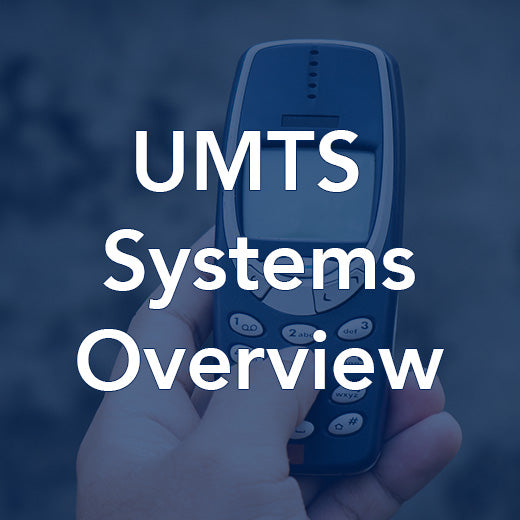
UMTS System Overview
The Universal Mobile Telecommunications System (UMTS) is a complex technology with extensive technical specifications. Wray Castle offers a two-day course (Course Code: MB350) that provides a high-level overview of UMTS, making it easier to grasp the intricacies of this technology. This course is designed for individuals seeking a technical introduction to the UMTS network, including its architecture, capabilities, and operations in conjunction with other networks. Participants in this course will benefit from a condensed learning experience that covers UMTS evolution, 3G standardization, spectrum allocation, services, network architecture, radio environment, core network operation, and more. Prior knowledge of 2G network operations and services is helpful, as well as the ability to understand technical information. By the end of the course, attendees will have a better understanding of UMTS channels, air interface operation, network procedures, power control, handover, and CDMA operation. Enhance your knowledge of UMTS with Wray Castle's comprehensive course that breaks down the complexities of this technology into digestible information. Join us for a two-day, high-level focused learning experience that will accelerate your understanding of UMTS and its role in the telecommunications industry. Who would benefit Those requiring a technical introduction to the UMTS network, its architecture, capabilities and operations including how it interworks with other networks. Prerequisites An appreciation of 2G network operation and services and an ability to comprehend technical information is beneficial. Topic Areas Include UMTS evolution and 3G standardization 3G spectrum allocation UMTS services and service aims UMTS network architecture UMTS radio environment and system areas Asynchronous Transfer Mode (ATM) Core network operation The IP Multimedia Subsystem (IMS) CDMA operation and code types Power control and handover UMTS channels and air interface operation UMTS network procedures
POA: Private Course
-
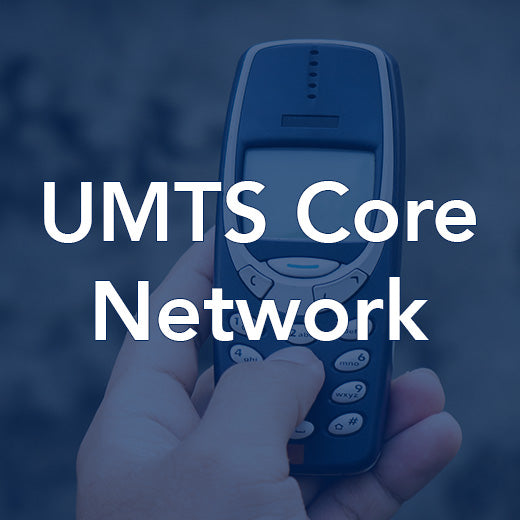
UMTS Core Network
This course provides a clear and logically organized tour of the 3GPP UMTS circuit-switched and packet-switched core network domains. The course describes the operation of the main core network protocols and outlines the evolutionary path towards an all IP based network. The functions of the various interfaces are explained including those towards the Evolved Packet Core (EPC). References are made to the latest releases of 3GPP specifications throughout the course. The UMTS Core Network course offered by Wray Castle is designed to provide a comprehensive understanding of UMTS core network architecture, interfaces, protocols, and operation. This course covers both the circuit-switched and packet-switched core network domains, explaining the main core network protocols and outlining the evolution towards an all IP-based network. Participants will learn about the functions of various interfaces, including those towards the Evolved Packet Core (EPC), and references are made to the latest releases of 3GPP specifications throughout the course. Ideal for those in the telecommunications industry or related fields, this course is beneficial for individuals seeking to enhance their knowledge of UMTS core network functionalities. Participants will gain insights into topics such as UMTS core network architectures, ATM, RANAP, Iu protocol, mobility management, interworking with 2G, 4G, and WLAN, multimedia messaging services, security functions, charging, and the evolution to the Evolved Packet Core (EPC). Familiarity with UMTS network architecture and basic knowledge of IP and OSI seven-layer model will be advantageous for participants looking to make the most of this course. Who would benefit Those requiring a comprehensive understanding of UMTS core network architecture, interfaces, protocols and operation, including the Release 4 circuit switched core network, the packet switched core network, associated functions such as security, charging, signalling protocols and location based services. Prerequisites Familiarity with the architecture and general operation of a UMTS network is beneficial. Some knowledge of IP and the OSI seven-layer model will also be advantageous. Topic Areas Include UMTS core network architectures Asynchronous Transfer Mode (ATM) RANAP Iu protocol Circuit-switched core network procedures Packet-switched core network functionality Mobility management Interworking with 2G, 4G and WLAN Multimedia Messaging Service (MMS) IN and CAMEL Location Services (LCS) Security functions Charging Evolution to the Evolved Packet Core (EPC)
POA: Private Course
-
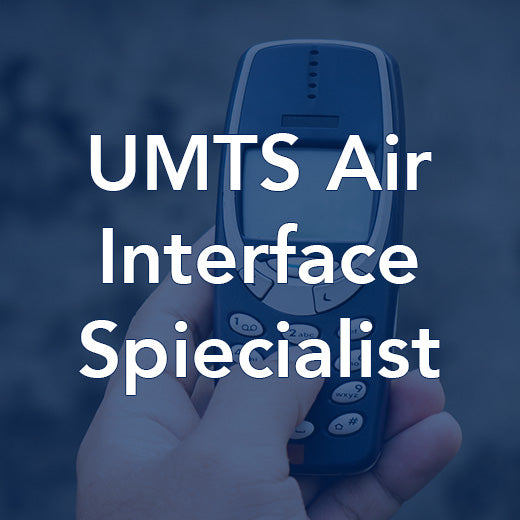
UMTS Air Interface Specialist Workshop
Join our UMTS Air Interface Specialist Workshop to deepen your understanding of the UMTS air interface environment. This course, with the course code MB1301, is designed for senior technical personnel involved in planning, designing, or supporting UMTS air interface systems. Whether you are looking to enhance your knowledge of the CDMA receiver, CDMA code functions, physical layer functions, or High Speed Packet Access (HSPA), this workshop will equip you with the necessary skills to excel in your role. By attending this workshop, you will gain valuable insights and practical knowledge that will benefit your work in the UMTS air interface environment. Don't miss this opportunity to expand your expertise and take your career to the next level. Prerequisites Attendance on this course assumes previous attendance on the UMTS Air Interface Live-on-Web course or equivalent knowledge. Contents The CDMA Receiver CDMA Code Functions Physical Layer Functions High Speed Packet Access (HSPA)
POA: Private Course
-
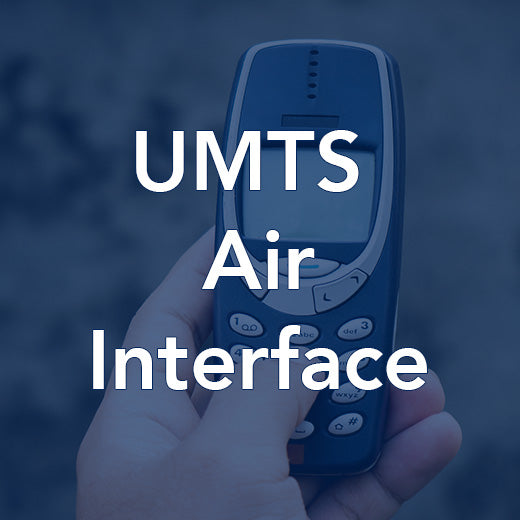
UMTS Air Interface
The UMTS Air Interface course offered by Wray Castle provides a comprehensive technical overview of the structure and operation of the UMTS air interface protocol stack. Ideal for individuals requiring a deep understanding of the UMTS air interface protocol stack from layers 1 to 3, this course covers a wide range of topic areas including the aims of a UMTS network, principles of spread spectrum technology, CDMA, UTRAN protocols, power control, layer 2 and layer 3 protocols, handover scenarios, security, and more. Participants are expected to have some prior knowledge of the UMTS network and its operation, or have attended the UMTS System Overview course (MB350) to fully benefit from this technical course. By enrolling in the UMTS Air Interface course at Wray Castle, participants can gain valuable insights and expertise in UMTS technology, enabling them to stay ahead in the rapidly evolving telecommunications industry. Don't miss this opportunity to expand your knowledge and enhance your skills in UMTS air interface protocols. Who would benefit Those requiring a comprehensive technical overview of the structure and operation of the UMTS air interface protocol stack from layers 1 to 3. Prerequisites This course is technical in nature and assumes some knowledge of the UMTS network and its operation, or previous attendance on the UMTS System Overview course (MB350). Topic Areas Include Aims of a UMTS network Principles of spread spectrum technology Principles of CDMA and the use of codes UMTS air interface protocol structure Overview of UTRAN protocols Functions of Layer 1 Analysis of physical channels Power control Layer 2 protocols – RLC, MAC and PDCP Layer 3 protocol – RRC Synchronization and idle mode activities Network access and radio network identities Connected mode activities Handover scenarios Transmit diversity Security and error protection
POA: Private Course





























































